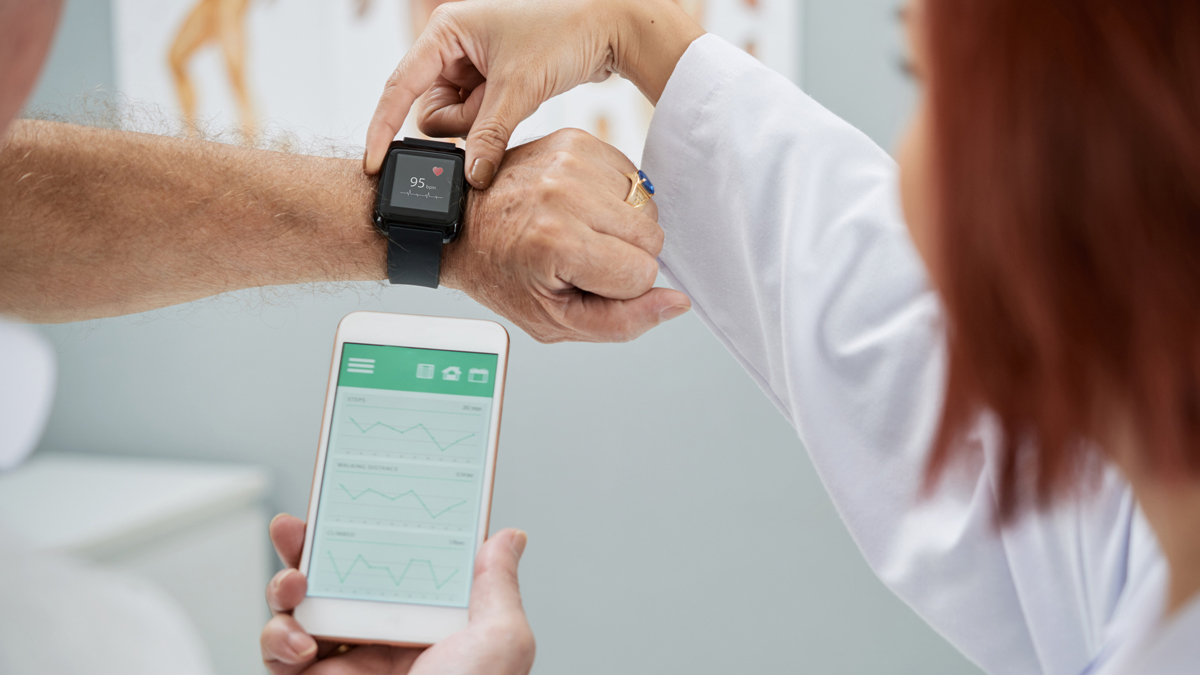Around 250 digital health apps are launching every day, says IQVIA

There was a dramatic increase in the launch of health-related mobile applications last year, taking the total number on offer in app stories to 350,000 – and while average quality is currently "middling" it is on the rise, according to a report from IQVIA.
The pandemic contributed to another 90,000 apps being introduced in 2020 – an average of 250 per day – and this coupled with rising number and functionality of wearable devices "provides evidence of digital health's accelerating innovation", according to the IQVIA Institute for Human Data Science's 2021 trends report.
Many of the new apps being launched are geared towards consumers and are intended for general wellness or fitness, but there is an increasing trend towards tools intended to help patients with specific health conditions.
Among the latter group, apps for mental health, diabetes and cardiovascular disease applications are the most common, collectively accounting for around half of all disease-specific launches.
Disease management apps now account for 47% of the most widely used digital health apps in 2020, up from 28% in 2015.
There remains a consumer-oriented emphasis in the wearables market, with 55% of devices still focusing on activity and fitness, but a new generation of more sophisticated devices is allowing tools to be developed that offer "significant health impact", said IQVIA.
"During the pandemic people self-monitored their oxygen saturations using pulse oximeters, and spikes in downloads of health apps tied to those devices occurred in waves around the globe, coinciding with peaks in virus cases and lockdowns," it pointed out.
IQVIA also identified 438 feasibility studies looking at 933 distinct biomarkers last year, and 96 trials that used digital biomarkers as endpoints, as digital health tools continue to be inserted into the medicine development process.
There's been an increase in the use of sensors and digital biomarkers in clinical trials of pharmaceuticals and medical devices that has allowed more studies to be carried out in a virtual or decentralised way.
Digital therapeutics (DTx) that set out to treat, prevent or manage specific diseases are also on the rise, with more than 250 identified and 150 already commercially available, helped by the introduction of approval pathways in national regulatory frameworks.
The commercial products are mostly tools aimed at clinical conditions like diabetes that can be personalised to patients and require involvement from healthcare providers or coaches, and a couple of dozen have been given marketing authorisation by regulators.
"We are finding evidence of a growing maturity of digital health tools in mainstream medicine," said Murray Aitken, executive director of the IQVIA Institute for Human Data Science.
"While there has been a significant growth in apps and digital health tools since 2013, we are beginning to detect improved quality of the digital health tools in the management of health conditions," he added.
That maturity is also reflected in the way digital health tools are being brought to market, with four business models emerging – direct to consumer, value-based contracting by payers or employers, and device- or drug-like reimbursement by health services.
There are still barriers to overcome however, including challenges in integrating the use of digital health tools into physicians' workflows, and a lack of standards for DTx assessment, prescribing and reimbursement.
Nevertheless, the quality improvements seen in recent years have resulted in strong evidence for some tools on patient health, encouraging uptake in clinical practice, according to Aitken.
"The growing success of digital health is a testament to the value and sustained impact of its innovation that bodes well for further advances in medicine and healthcare moving forward," he said.
The trends identified by IQVIA tie in with rising levels of investment in the digital health sector, with a record $14.7 billion injected into US digital health companies in the first half of this year, overtaking the entire amount raised in 2020 in just six months.













